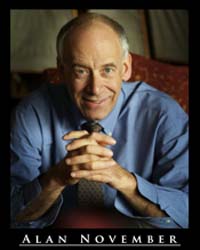 Ceux qui ont assisté à la séance de formation offerte aux parents sur l’utilisation des technologies le mois dernier se joindront certes à moi pour souligner les mérites de son contenu ou du moins la pertinence du sujet.
Ceux qui ont assisté à la séance de formation offerte aux parents sur l’utilisation des technologies le mois dernier se joindront certes à moi pour souligner les mérites de son contenu ou du moins la pertinence du sujet.
Je suis de la génération de ceux qui ont vu apparaître les multiples innovations technologiques, les ont intégrées comme outils de travail et continuent à découvrir leurs innombrables utilisations et avancements. Je me réjouis de constater que mes enfants ont pour leur part le bénéfice d’intégrer ce monde digital à leur apprentissage académique, opportunité dont je n’ai moi-même pu bénéficier étant de la génération X, je vous le rappelle! À ce titre, je m’en remets d’emblée à l’expertise et le travail assidu de tous nos éducateurs exceptionnels à LCC.
Toutefois, en ce qui concerne nos enfants le ”caveat” est important; ces technologies constituent également leur outil d’apprentissage social dont la responsabilité ultime nous revient en tant que parents. Il est donc essentiel de bien pouvoir en identifier les enjeux. À cet égard, les points les plus marquants nous ont été présentés sous cinq appelletions principales:
1-“digital print” (réaliser que ce qui est affiché dans le cyberespace laisse des traces);
2-“searchability” (comprendre que chacun est l’artisan de ce qui devient associé à son nom);
3-“replicability” (considérer que ce que nous écrivons peut être réutilisé de façon non conforme à notre intention);
4-“invisible and endless audience” (être concient de la multitude d’interlocuteurs inconnus); et
5-“confidentiality” (connaître les dangers d’utilisation de nos comptes par d’autres).
Le second défi relève de notre capacité d’en transmettre efficacement la sagesse à nos enfants. S’il peut s’avérer opportun d’imposer certaines interdictions, il demeure que l’efficacité de notre intervention sera davantage assurée par une solide éducation des valeurs sous-jacentes. Néanmoins, dans le contexte du cyberespace, des consignes supplémentaires s’imposent et peuvent sans doute être inspirées des quelques astuces simples mais remarquablement ingénieuses qui nous ont été proposées:
1-La “Mom rule”: dans l’évaluation du caractère approprié d’une communication, supposer que notre mère en prendra connaissance. Ma version personnelle enseignée à mes enfants inclut aussi la présomption que leur “headmaster” en recevra une copie, ce qui dans ma perspective commande un plus haut niveau de retenue, non!
2-La “News rule”: cette règle, qui a également pour but d’agir comme censure demande qu’on réponde affirmativement à la question de savoir si le contenu de la communication pourrait sans problème se retrouver en éditorial du lendemain; et
3-La règle d’or: ne jamais dévoiler à quiconque et protéger la confidentialité de ses mots de passe et autres numéros d’identification personnels.
Je ne prétends pas rendre justice à l’étendue de cet exposé qui nous a été présenté et vous invite donc à en prendre connaissance en cliquant sur le lien qui suit: DigitalFootprintJ6
–Anne-Marie Boucher

 End of decades bring on some curious developments. Think about it, music is constantly referred to by the decade. There are entire stations on satellite and local radio dedicated to 60s, 70s, 80s, and 90s classics. Social trends are also attributed to specific decades. We like to classify things this way; hippies and the rise of feminism during the 60s is a perfect example of this tendency. A decade reflects a neat and tidy period, and analysts like to compartmentalize specific trends, developments and orientations.
End of decades bring on some curious developments. Think about it, music is constantly referred to by the decade. There are entire stations on satellite and local radio dedicated to 60s, 70s, 80s, and 90s classics. Social trends are also attributed to specific decades. We like to classify things this way; hippies and the rise of feminism during the 60s is a perfect example of this tendency. A decade reflects a neat and tidy period, and analysts like to compartmentalize specific trends, developments and orientations. This past weekend I read about a conference of language experts in the USA who gathered to determine the most important new words from the past decade. The sponsoring organization is called the American Dialect Society and is composed of leading linguists, writers and independent scholars. Yes, language does evolve and change. In fact through teenagers’ current addiction to texting at an extraordinary rate, young people are actually influencing the English language more dramatically and more rapidly than at any time in history, especially when it comes to the use of new abbreviations for words.
This past weekend I read about a conference of language experts in the USA who gathered to determine the most important new words from the past decade. The sponsoring organization is called the American Dialect Society and is composed of leading linguists, writers and independent scholars. Yes, language does evolve and change. In fact through teenagers’ current addiction to texting at an extraordinary rate, young people are actually influencing the English language more dramatically and more rapidly than at any time in history, especially when it comes to the use of new abbreviations for words. I firmly believe that we are on the cusp of an incredible paradigm shift in education – the results of which may not be fully appreciated for decades. In the past 20 years I have witnessed incredible changes in the ways that students acquire and retain information. Technology has radically changed the ability to access and communicate ideas. It has probably also changed the way that our brains retain information and may actually impact the way that we think. I recently read an article about McMaster University and their concerns about incoming mathematics students. The university is conducting a study to find out the impact of multi-tasking on a student’s ability to focus on a problem for sufficient time to come up with a solution. At the same time, we are seeing students take far more control over their learning and produce work of an unprecedented quality.
I firmly believe that we are on the cusp of an incredible paradigm shift in education – the results of which may not be fully appreciated for decades. In the past 20 years I have witnessed incredible changes in the ways that students acquire and retain information. Technology has radically changed the ability to access and communicate ideas. It has probably also changed the way that our brains retain information and may actually impact the way that we think. I recently read an article about McMaster University and their concerns about incoming mathematics students. The university is conducting a study to find out the impact of multi-tasking on a student’s ability to focus on a problem for sufficient time to come up with a solution. At the same time, we are seeing students take far more control over their learning and produce work of an unprecedented quality.